- 0086-571-85302990
- sales@greenskybio.com
Benefits of ginseng root extract in cattle feed.
2024-11-13

1. Introduction
In the modern livestock industry, the search for natural additives to improve animal health and productivity is of great significance. Ginseng Root Extract has emerged as a potential candidate for use in cattle feed. Ginseng, a well - known plant in traditional medicine, has a wide range of pharmacological properties in humans. Recent studies have begun to explore its application in animal husbandry, especially in cattle rearing. This article aims to comprehensively discuss the various benefits of Ginseng Root Extract when added to cattle feed.
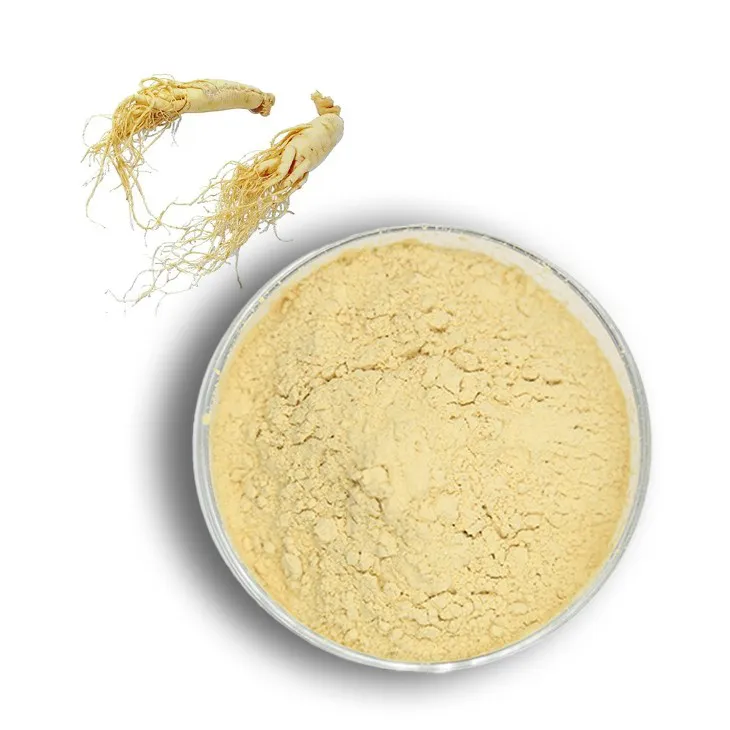
2. Regulation of Physiological Functions
2.1. Immune System Enhancement
Ginseng Root Extract contains active components such as ginsenosides, which have immunomodulatory effects. In cattle, a strengthened immune system is crucial for preventing diseases. When ginseng root extract is incorporated into the feed, it can stimulate the production of immune cells, such as lymphocytes and macrophages. For example, it may enhance the phagocytic ability of macrophages, allowing them to more effectively engulf and eliminate pathogens. This helps cattle to better resist various infections, reducing the need for antibiotics and other medications.
2.2. Endocrine System Regulation
The endocrine system plays a vital role in the growth and development of cattle. Ginseng root extract can influence the endocrine system in several ways. It may interact with the hypothalamus - pituitary - adrenal (HPA) axis, which is responsible for regulating stress responses. By modulating the HPA axis, ginseng root extract can help cattle better adapt to environmental changes and stressors. Additionally, it may also affect the secretion of hormones related to growth, such as growth hormone and insulin - like growth factor - 1 (IGF - 1). This can potentially promote the growth and development of cattle, leading to increased body weight and improved carcass quality.
2.3. Antioxidant Activity
Cattle are constantly exposed to oxidative stress, which can damage cells and tissues. Ginseng root extract exhibits antioxidant properties due to its high content of phenolic compounds and ginsenosides. These antioxidant components can scavenge free radicals in the body of cattle, preventing oxidative damage to lipids, proteins, and DNA. For instance, it can reduce lipid peroxidation in cell membranes, maintaining the integrity of cells. This antioxidant activity not only improves the overall health of cattle but also extends their productive lifespan.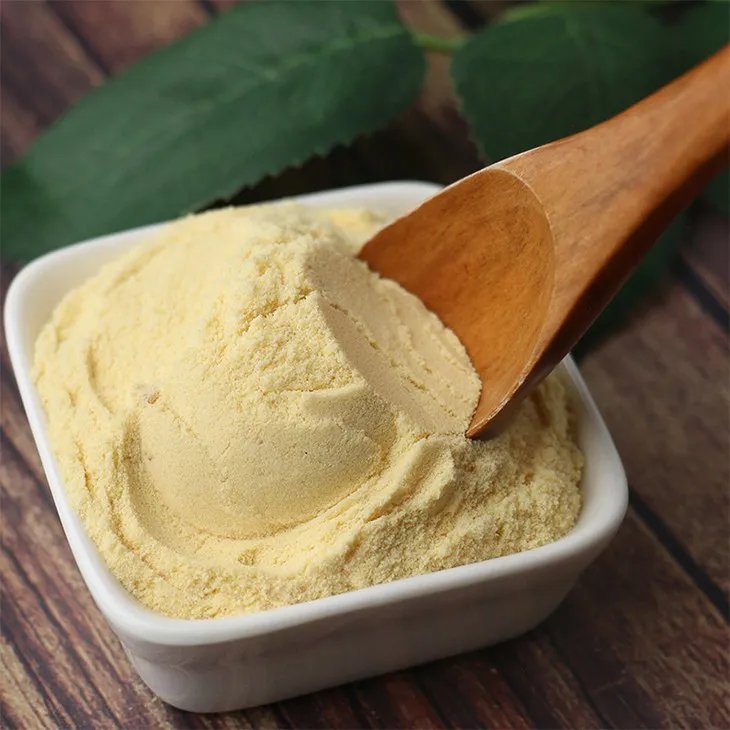
3. Improvement of Rumen Function
3.1. Microbial Population Modulation
The rumen is a complex microbial ecosystem in cattle. Ginseng root extract can influence the composition and activity of the rumen microbiota. It may promote the growth of beneficial bacteria, such as cellulolytic bacteria. These bacteria are essential for breaking down fibrous feed components, such as cellulose and hemicellulose. By increasing the population of cellulolytic bacteria, ginseng root extract can enhance the fermentation process in the rumen, resulting in more efficient digestion of feed. In addition, it may also suppress the growth of harmful bacteria, reducing the risk of rumen disorders.
3.2. pH Regulation
Maintaining an appropriate pH in the rumen is crucial for optimal rumen function. Ginseng root extract can help regulate the rumen pH. During the fermentation of feed in the rumen, the production of volatile fatty acids (VFAs) can cause a decrease in pH. Ginseng root extract may buffer this pH change by interacting with VFAs or influencing the metabolic processes of rumen microbes. A stable rumen pH ensures the normal functioning of rumen microorganisms and improves the efficiency of nutrient absorption.
3.3. Nutrient Absorption Enhancement
With the improved rumen function due to ginseng root extract, the absorption of nutrients in the intestine also increases. The enhanced digestion of feed in the rumen releases more nutrients in a form that can be easily absorbed in the small intestine. For example, the increased availability of amino acids and fatty acids can be utilized by the body for growth, reproduction, and maintenance. This leads to better feed conversion efficiency, meaning that cattle can obtain more energy and nutrients from the same amount of feed.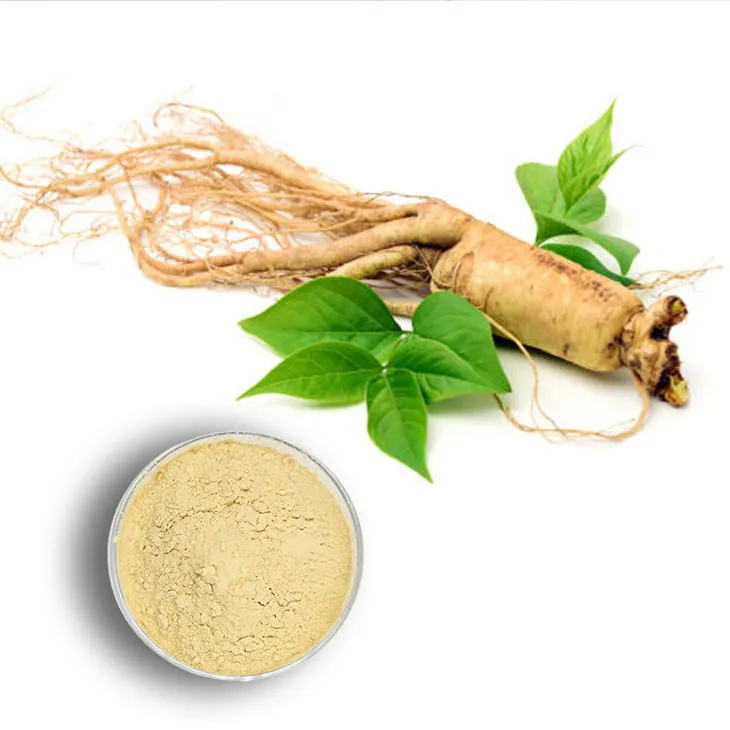
4. Reduction of Stress - Related Problems
4.1. Adaptation to Environmental Stress
Cattle are often exposed to various environmental stresses, such as heat stress, cold stress, and changes in humidity. Ginseng root extract can enhance the adaptability of cattle to these environmental stressors. For example, during heat stress, it may help regulate the body temperature of cattle by improving the function of the thermoregulatory system. It can also reduce the negative impacts of cold stress on the immune system and metabolism of cattle. This ability to adapt to environmental stress is important for maintaining the productivity of cattle in different seasons and regions.
4.2. Handling and Transport Stress
Cattle experience stress during handling and transportation, which can lead to decreased appetite, weight loss, and increased susceptibility to diseases. Ginseng root extract can mitigate these stress - related problems. It may act on the central nervous system of cattle to reduce anxiety and fear during handling and transportation. This can result in less disruption of normal physiological functions, ensuring that cattle maintain their health and performance during these stressful procedures.
4.3. Social Stress Management
In a herd environment, cattle may experience social stress, such as competition for food and space. Ginseng root extract can help cattle better cope with social stress. It may influence the behavior and hormonal responses of cattle in a social setting, reducing aggressive behavior and promoting harmonious coexistence within the herd. This is beneficial for the overall well - being of the herd and can also improve productivity by reducing stress - related losses.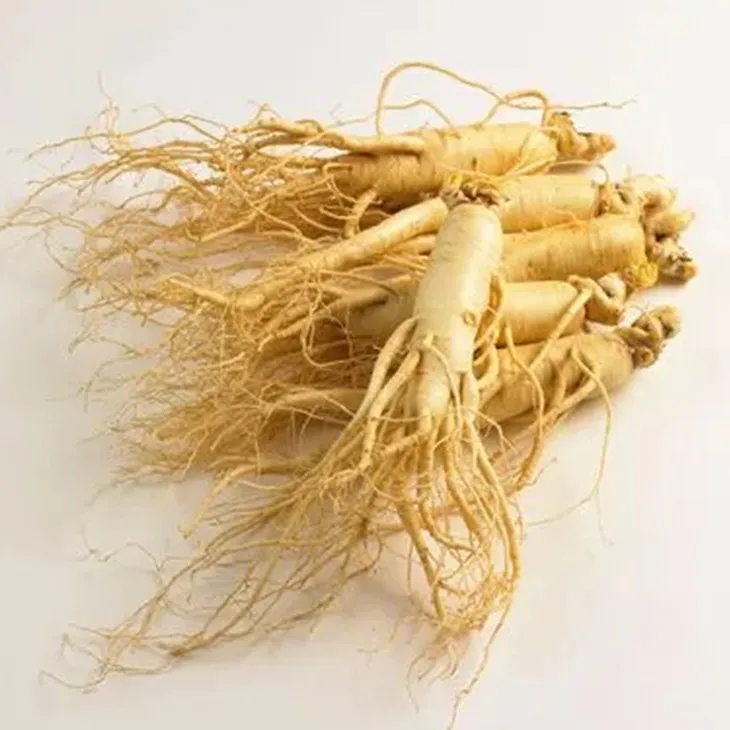
5. Conclusion
In conclusion, the addition of ginseng root extract to cattle feed offers a multitude of benefits. It can effectively regulate the physiological functions of cattle, improve rumen function, and reduce stress - related problems. These advantages not only contribute to the better health and well - being of cattle but also have significant implications for the livestock industry. By improving the productivity and quality of cattle, ginseng root extract can potentially increase the economic returns for farmers and ranchers. However, further research is still needed to fully understand the optimal dosage, long - term effects, and potential interactions with other feed additives. With continued research and development, ginseng root extract has the potential to become a valuable addition to modern cattle feed formulations.
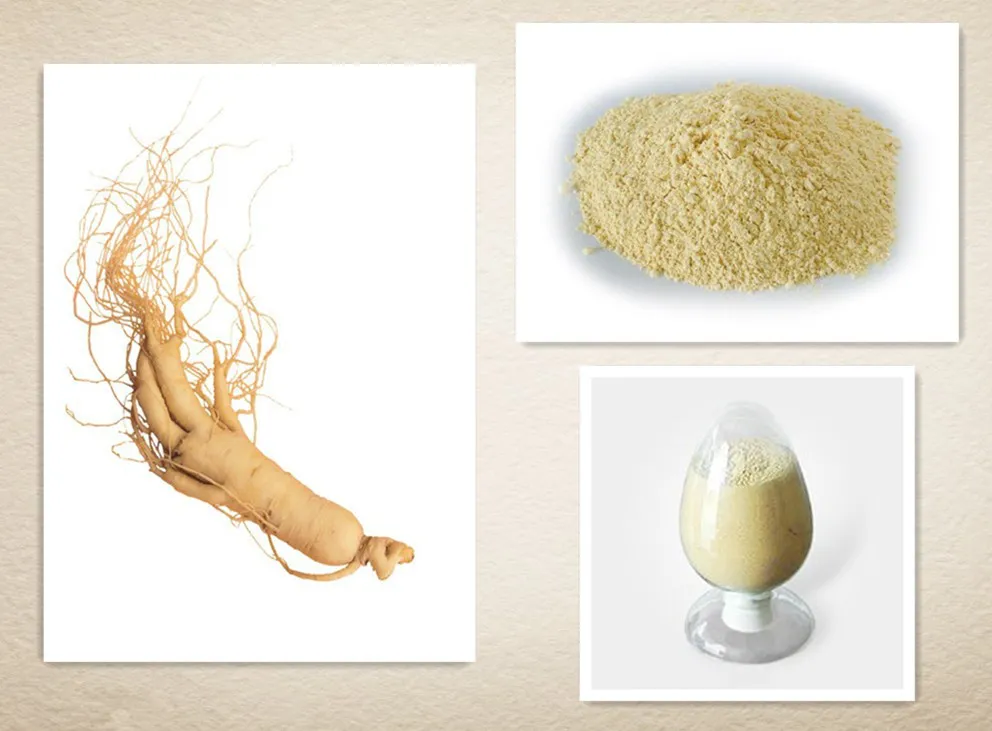
FAQ:
Q1: How does ginseng root extract regulate the physiological functions of cattle?
While the exact mechanisms are still under study, it is believed that the bioactive compounds in ginseng root extract, such as ginsenosides, may interact with the endocrine and immune systems of cattle. These interactions can potentially influence various physiological processes, like hormone regulation and immune response modulation, which in turn contribute to the overall regulation of physiological functions.
Q2: Can ginseng root extract really improve feed utilization in cattle?
Yes, it can. By enhancing the rumen function, ginseng root extract helps break down feed more effectively. The rumen is a crucial part of a cow's digestive system, and when its function is improved, the cattle can extract more nutrients from the feed, thus leading to more efficient feed utilization.
Q3: What stress - related problems in cattle can be reduced by ginseng root extract?
Ginseng root extract may help reduce problems such as transportation stress, heat stress, and management - related stress in cattle. It could potentially do this by modulating the stress - response mechanisms in the animals, such as reducing the production of stress hormones and enhancing the antioxidant defense system.
Q4: Are there any potential side effects of using ginseng root extract in cattle feed?
So far, no significant side effects have been reported when using appropriate amounts of ginseng root extract in cattle feed. However, more research is needed to fully understand the long - term effects and potential interactions with other feed components or medications.
Q5: How much ginseng root extract should be added to cattle feed?
The optimal dosage of ginseng root extract in cattle feed depends on various factors such as the age, weight, and health status of the cattle, as well as the composition of the rest of the feed. Currently, research is ongoing to determine the most effective and safe dosage ranges, but initial studies suggest starting with small amounts and gradually adjusting based on the observed responses in the cattle.
Related literature
- The Effects of Ginseng on Ruminant Physiology"
- "Ginseng Root Extract in Animal Nutrition: A Review"
- "Beneficial Roles of Ginseng in Cattle Health and Production"
- ▶ Hesperidin
- ▶ citrus bioflavonoids
- ▶ plant extract
- ▶ lycopene
- ▶ Diosmin
- ▶ Grape seed extract
- ▶ Sea buckthorn Juice Powder
- ▶ Beetroot powder
- ▶ Hops Extract
- ▶ Artichoke Extract
- ▶ Reishi mushroom extract
- ▶ Astaxanthin
- ▶ Green Tea Extract
- ▶ Curcumin Extract
- ▶ Horse Chestnut Extract
- ▶ Other Problems
- ▶ Boswellia Serrata Extract
- ▶ Resveratrol Extract
- ▶ Marigold Extract
- ▶ Grape Leaf Extract
- ▶ blog3
- ▶ blog4
- ▶ blog5
-
Organic Tongkat Ali extract powder factory.
2024-11-13
-
How to make powder with ashwagandha extract.
2024-11-13
-
Rosehip extract manufacturers from China.
2024-11-13
-
The best cat's claw extract in nature.
2024-11-13
-
Chinese Dandelion Leaf Extract Suppliers.
2024-11-13
-
Yellow Pine Extract
2024-11-13
-
Chasteberry Extract
2024-11-13
-
Aguaje Extract
2024-11-13
-
White mustard seed extract
2024-11-13
-
Ginseng Root Extract
2024-11-13
-
Eucommia Ulmoides Extract
2024-11-13
-
Avocado Extract Powder
2024-11-13
-
Nutmeg Extract
2024-11-13
-
Berberis aristata Extract
2024-11-13
-
Baicalin
2024-11-13




















